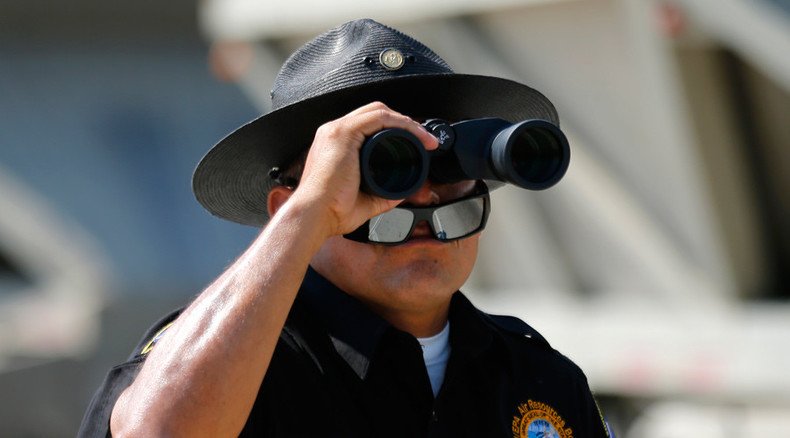Border Patrol’s alleged abuses go unpunished, ACLU-acquired complaints show

Border Patrol agents screening motorists on checkpoints near the Mexican border are being accused of abuses, but the majority of complaints lead to no consequences – and many never get reported by the agency, records obtained by the ACLU show.
The American Civil Rights Union (ACLU) received nearly 6,000 pages of documents from the Department of Homeland Security – the supervising body of the Customs and Border Protection (CBP) – in recent months, The New York Times reported. They were released after the ACLU of Arizona successfully sued the department for access. Among the documents are 142 complaints, arrest statistics, and other records which collectively portray the CBP as an abusive agency with great authority and little restrictions.
Only one of the complaints seems to have resulted in any sort of disciplinary action. That complaint was filed by the son of a retired Border Patrol agent, who said his car was unjustifiably stopped. The agent responsible received a one day suspension.
Illegal migrants rescued from sweltering truck in Texas (VIDEO) http://t.co/bKFovKUXU9pic.twitter.com/2GoKTjBCCM
— RT America (@RT_America) October 9, 2015The ACLU says the records also confirm that CBP underreports the number of complaints filed against it. A report to Congress for the 2012 fiscal year listed three complaints involving alleged violations of the Fourth Amendment, which prohibits unreasonable search and seizure. The ACLU documents include 81 such accusations filed during the same period, against just two of the 20 regional divisions which the agency operates on both the southern and northern borders.
Another issue under scrutiny is use-of-force incidents by Border Patrol. Since 2010, 33 people have died in encounters with CBP agents. So far, only one such incident has resulted in federal charges. Agent Lonnie Swartz pleaded not guilty last week in the cross-border killing of 16-year-old José Antonio Elena Rodríguez.
“CBP’s own records paint a disturbing picture of lawlessness and impunity, in which the agency continually operates without any regard for accepted best practices, and agents commit widespread abuses knowing they won’t be held accountable,” said ACLU lawyer James Lyall.
One in three deported migrants robbed, separated from families by US border agents – report
http://t.co/eM0HmiNYZ0pic.twitter.com/RfWaodnPrs
— RT America (@RT_America) September 22, 2015The accusation comes as the CBP’s new chief, Commissioner R. Gil Kerlikowske, is struggling to reform the agency after taking the position in March 2014. He announced the latest policy updates this month, calling for proper safekeeping of the personal items of apprehended migrants, adequate standards of hygiene and temperature in holding cells, and specific language on gender identity.
Civil rights groups and elected officials believe there is a lot more than needs to be done.
“Citizens, permanent legal residents, people who have lived in the borderlands for generations – that’s who’s making these complaints,” Raúl M. Grijalva (D-Ariz.).
“People make the complaints, but their complaints go nowhere. There’s no acknowledgment, absolutely no response,” he said.
The CBP’s highway checkpoints and roving patrols in Arizona and California are meant to stop drugs and illegal persons from going north. Agents rely on sniffer dogs to inspect the thousands of cars passing through. The agency does not keep track on the number of searches it conducts, only on those that result in arrests.












